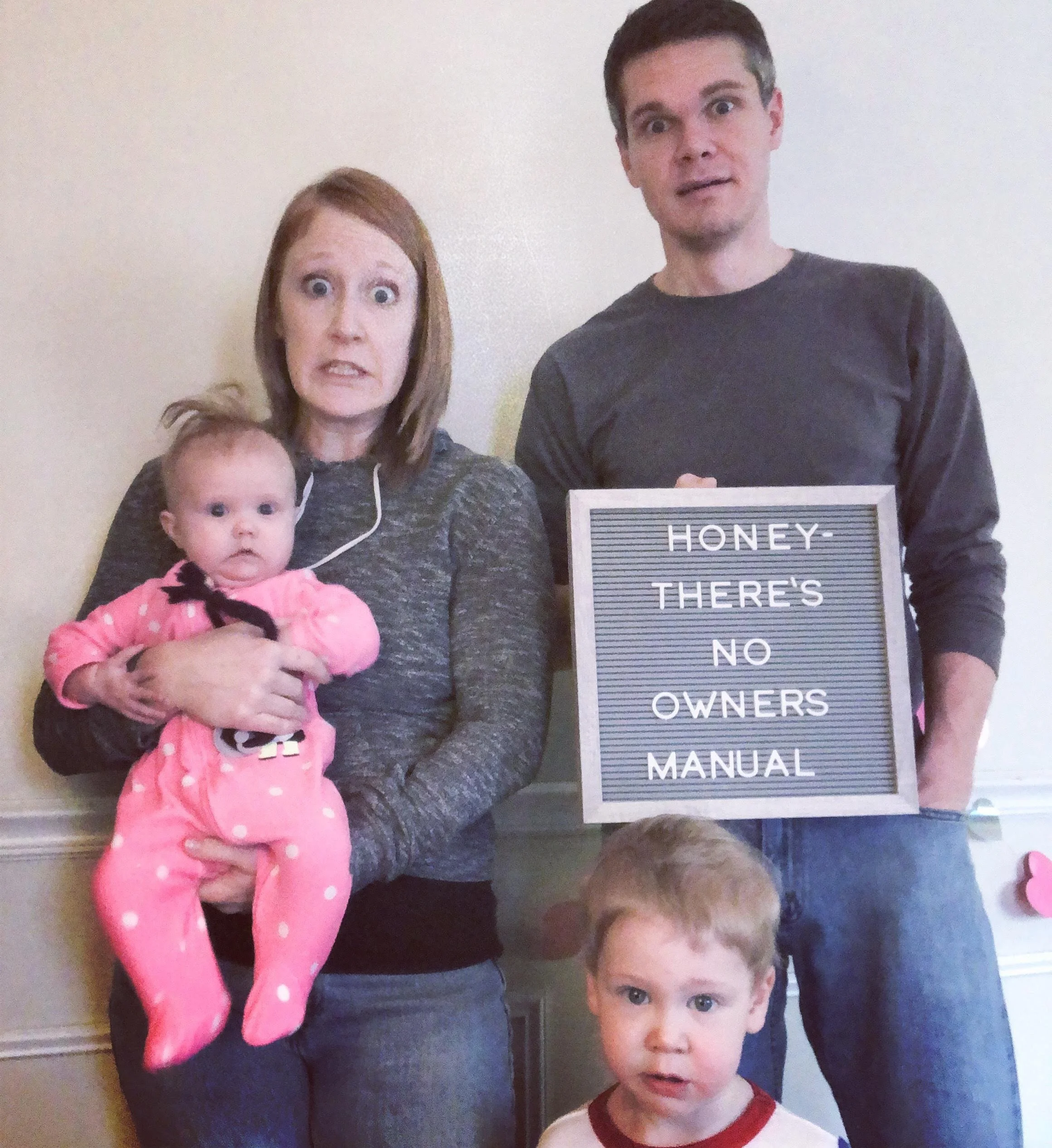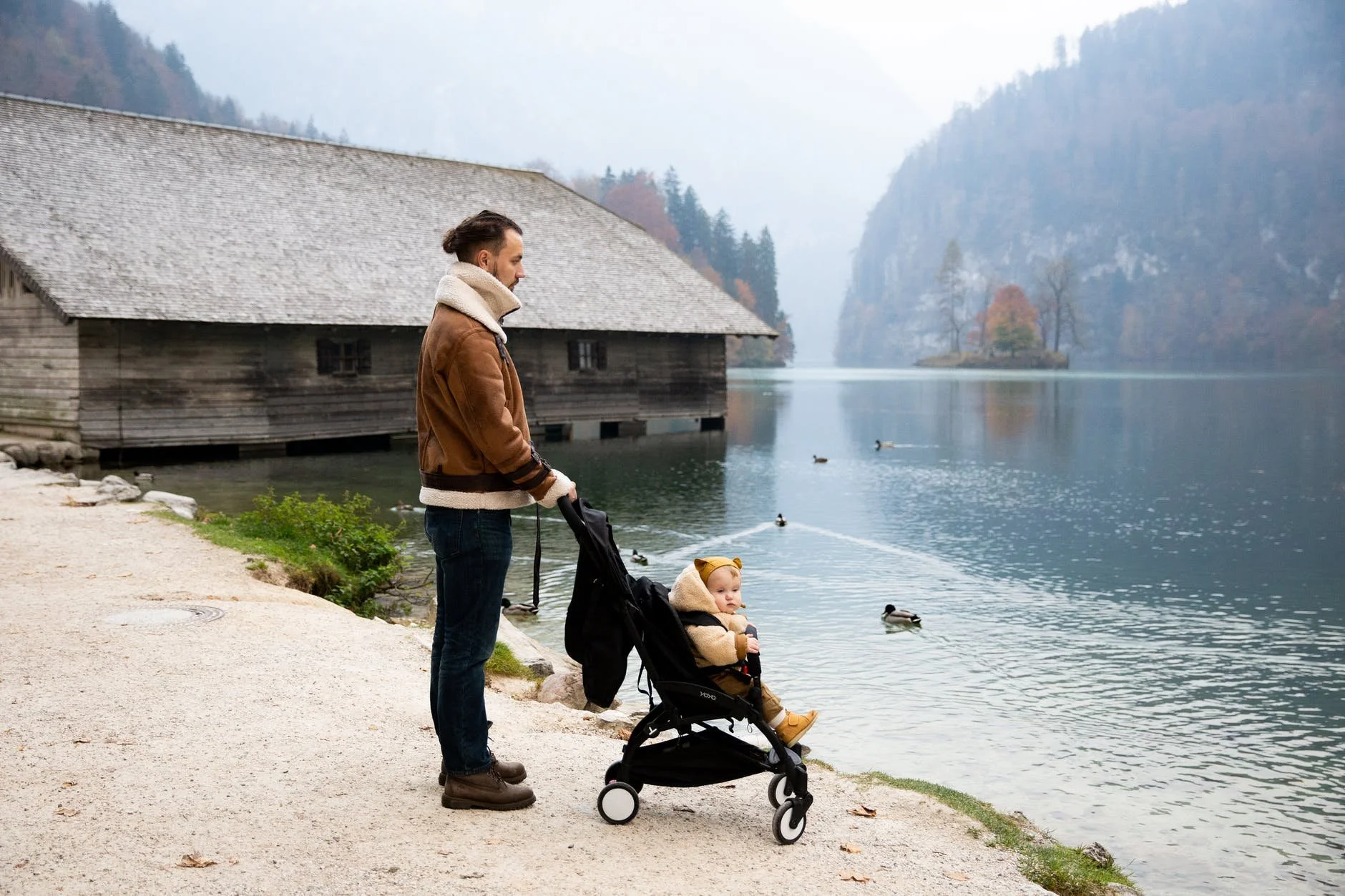7 Ways Your Partner Can Step In After Baby
If you bring a baby into this world with a partner, it is a full-family change. It's easy to feel like the load falls more on the mom, but there are many ways a partner can help after you bring home your baby. Having husband, wife, or partner support after having a baby is so important. Birthing women need time to rest, recover, and figure out how to provide for this new baby. Partners play a big role in supporting the mom, building the bond with the baby, and helping the family to recover and find their new rhythms.
Here we will discuss 7 ways that partners can step-in and support a mom after having a baby. We will also discuss why support and bonding with baby is so important for the husband, wife, or partner. After you read, make sure to comment below with any additional tips or ideas.
How a Partner Can Support Mom and Baby After Birth
If you're looking to be a supportive partner or wanting to talk with your partner about how to better support you, here are some great starting points. As with all parts of marriage and parenthood, communication is key The more you can communicate proactively, the better.
1. Prioritize Mom's Sleep
Sleep is crucial for new moms and aids in mental and physical health recovery. Sleep deprivation is believed to be a factor in the presence and severity of postpartum depression. You can support a new mom by helping her to prioritize sleep. In the early days and weeks, encourage her to sleep when possible to recover from the exhaustion of labor and delivery. Remind her that there are many things that do not need to be done and that sleep will help her and the baby in the long run.
Even after the first few weeks, sleep continues to be an important factor. It is helpful for both parents to share the overnight waking duties in order to care for the baby. If a woman is breastfeeding, the partner can take over diaper changes and putting the baby back to sleep. If the baby is bottle-fed, or is night-weaned, the partner can step in for more help in overnight duties.
Some families opt for a postpartum doula or a night nurse, especially in the early days, to help the family recovery with adequate sleep. This can be much more helpful than another onesie or a fancy nursery set up.
2. Take on Some of the Research
Babies do not come with an owners manual, unfortunately. And many parents find themselves researching and turning to google and blogs for information to help shape their decisions. From ways to help baby sleep, growth and milk intake, what to do about a runny nose, and more, there are many new things to learn. Let it be said that there is no one perfect approach to any part of parenthood. The blogs and the courses were written but are not specific to your baby, so take things with a grain of salt and lean into your own intuition.
However, there are things that need to be researched. This is a great way for partners to take on more of the mental load. Share the research between mom and partner and then schedule a time to discuss the findings and make decisions for your family.
3. Take the baby on walks/drives
For many moms, it is difficult to "check out" when there are still things she could do or take care of at home. A mom's mind is constantly going. Taking the baby out for a walk or a drive can give mom the chance to know the baby is taken care of so that she can reset with a shower, meditation, or other way of taking care of herself.
Protip: Learn how to pack the diaper bag so that mom does not feel like she has to take care of it. Having a to-do list in order for her to have some time to herself can make the effort not worth it.
4. Understand her body recovery needs
Contrary to popular culture, there is no "bounce back" to a mom's body after giving birth. Both vaginal delivery and belly/cesarean birth require time to heal. As a partner, you can help by being informed about how the body heals and any red flags to look out for. Listen carefully when mom is discharged, be a part of the conversations about her healing and recovery. Learn more about the bleeding red flags in postpartum here.
Related: Peeing after Childbirth
5. Lead the charge on visitors and boundaries
The last thing an exhausted mom needs to do is to worry about hosting visitors. Everyone wants to see the baby and visit, but it can be taxing. Many cultures have 40 days of rest after baby and for good reason, because moms need space to recover. If you as the partner can lead the charge of setting expectations and boundaries around visitors, it will be helpful to everyone. If your family decides to welcome visitors, make sure mom knows it is okay for her to use that time to rest or take care of herself too instead of trying to host.
6. Keep the supply baskets stocked up
If mom followed the things I wish I had done in the third trimester, she has stations set up to make caring for herself and baby easier. As her partner, you can make sure these baskets stay stocked up. Does she have snacks and water readily available? Is the baby-care station well stocked? Does she have what she needs in the bathroom? A daily check of these stations ensures less "oh shit, where is the ___" moments.
7. Check in on her mental and emotional health
Many moms look like they have it all together, because they feel like they have to appear that way. As her partner, you have the opportunity to ensure that she is mentally and emotionally cared for. Ask her questions about her day, her recovery, her mental state, etc. If you are not sure where to start, here are a few questions you can use:
-Is there anything making you feel not like yourself?
-What do you need to recharge?
-Have you had any scary thoughts today?
The Importance of Working Together as New Parents
Having a baby creates changes and new needs for everyone. It is important that as partners, you lean in to how to support each other in this season. While it may seem long, every season passes and brings new experiences. These babies do not have an owners manual, but they have loving parents who get to learn who they are and grow together as a family.
If you are pregnant and want to be proactive with a postpartum plan, shoot me a message. If you are a new parent who wants to get coaching and ideas with a personal consultation, shoot me a message.


